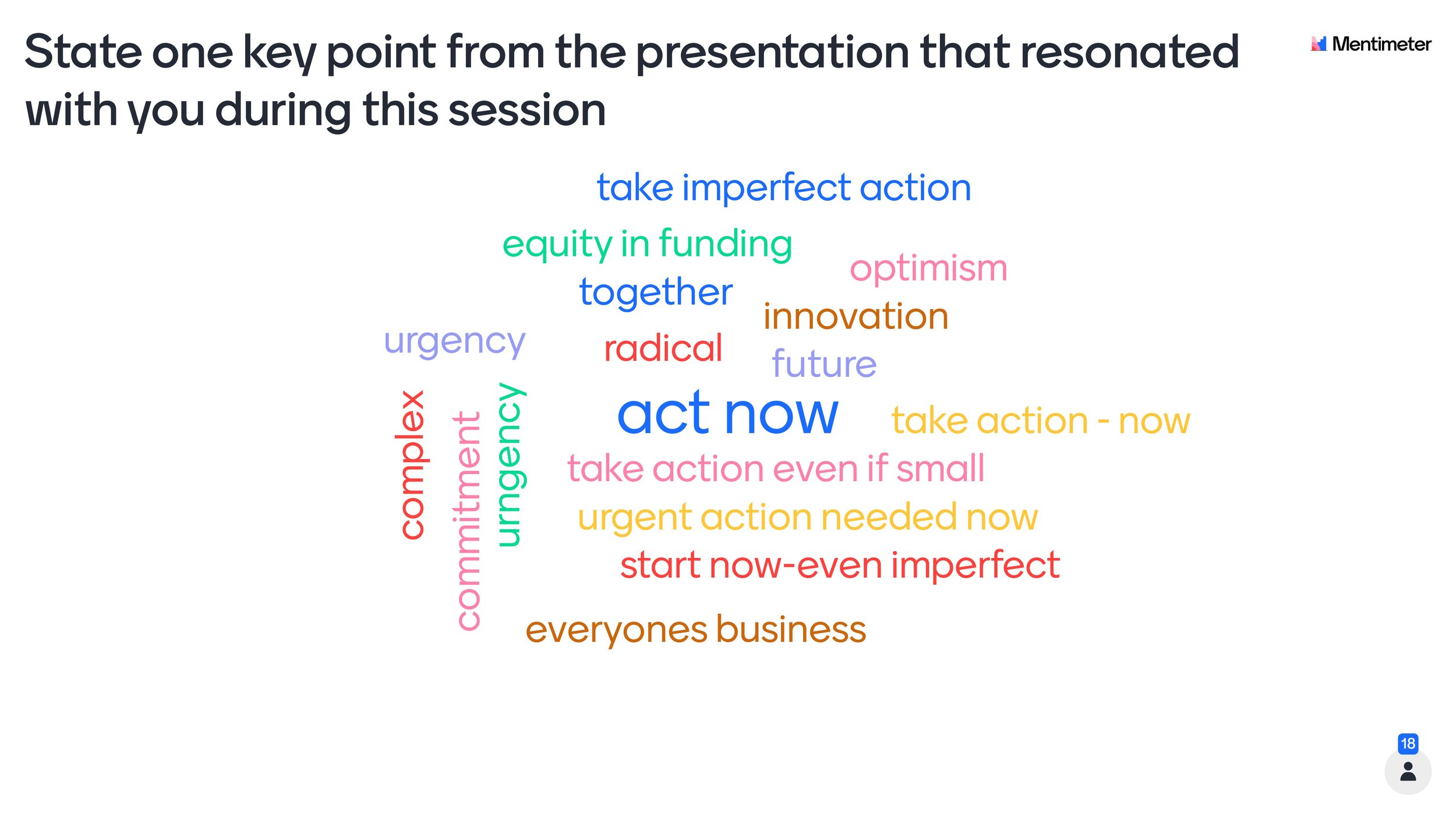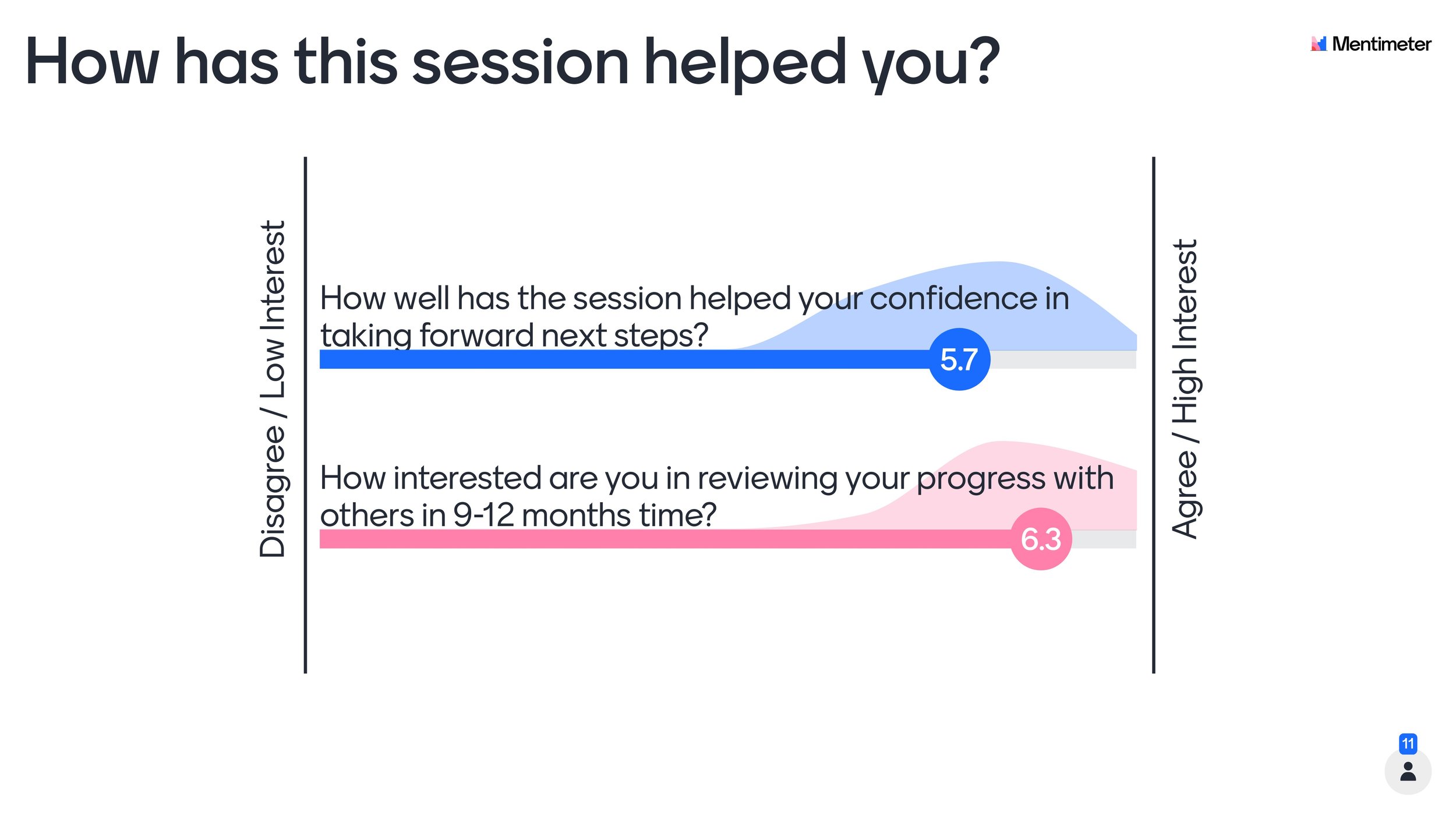Annual Conference 2022: Debrief
We held our Annual Conference on the 18th and 19th May 2022, exploring the climate emergency, sustainability and funding. In this debrief, we take a dive into each of the sessions, provide links to the recordings and the resources from our presenters and summarise the key messages and take aways, from a jam-packed and inspiring two day conference.
The key message that everyone took away with them was that:
“Whether a specialist ‘environmental’ funder or not - we must all take action to ensure a sustainable future.”
Session 1
Resources:
Session 1 - Access the recording here - Passcode: &2&2nY4I
Our opening session focused on our understanding of the sustainability agenda. The session explored the causes and impact of climate change; terminology, concepts and how they relate to policy and practice. We also discussed climate change and carbon emissions with a place-based or thematic approach for funders. Jane Cabutti from the Environmental Funders Network highlighted that the level of UK funding has increased by 50% (combined annual giving from foundations and lottery sources) from the previous 4-year period with foundation giving almost doubling to £204 million per year.
With climate change affecting all other social issues from public health, disadvantaged communities and education, it means that all funders can play a part in addressing the causes and impact of climate change. Key messages that resonated from the presentation: action is needed now; small steps are valuable; taking some action, even if imperfect, is better than not taking any action.
Mentimeter: Extract from Session 1 - State one key point from the presentation that resonated with you
Session 2
Resources:
Session 2 - Unfortunately the recording failed for this session.
In the second session we gained insights into the strategic and operational priorities of the West Midlands Combined Authority (WMCA) and Solihull MBC.
They both presented on their approaches to combat climate change and carbon emissions at regional and local levels. There were presentations from Cheryl Hiles, Energy Capital and Claire Spencer, WMCA, Anne- Marie Attfield and Andrew Greenall, Solihull MBC.
Kate Raworth’s Doughnut Economics has been the transformational economic framework used by WMCA to bring together planetary and human needs in creating an inclusive economy. The goal for both institutions is to achieve net zero emissions by 2041. Both the WMCA and Solihull MBC recognise that achieving net zero goals requires all stakeholders to play their part.
Though there is a recognition of the need to collaborate with the third sector, the investment is small and under-developed. In conclusion, the session recognised that more radical approaches are needed to disrupt the accrual of benefit into the future that overcomes short term financial gain.
Sessions 3 and 4
Resources
Session 3 - Access the recording here - Passcode: 91x.LaLc
Saintbury Charitable Trust and Cole Charitable Trust - Presentation Slides
Phil Beardmore, Environmental Consultant - Presentation Slides
Session 4 - Access the recording here - Passcode: PI1.XNAW
Our final sessions focused on how funders can move forward on their journey towards integrating a sustainability in their organisational and funding operations.
Participants were asked to indicate where they would put their organisation on the journey to tackling climate change:
Mentimeter: Extract from Session 3 - Where would you put your organisation on the journey to tackling climate change?
Session three provided examples of climate action from the Saintbury and Cole Charitable Trusts, Scotland Community Foundation, Power to Change and the National Lottery Community Fund.
Improving the knowledge and understanding of trustees and staff was a common theme. Some funders were integrating sustainability in funding programmes. Others were moving forward to improve their endowment, investment approach to support climate change.
The Funders Commitment to Climate Change has been an important framework in helping those funders shape their approach to integrating sustainability.
Nick Perks, founder of the Funders Commitment to Climate Change facilitated our final session, supporting participants to explore how the framework can support funders to take action. Some of the next steps reflected in the breakout sessions reflected a strong interest for the WM Funders Network to revisit progress in 12 months’ time.
Mentimeter: Extract from Session 4 - Identify one aspect you will consider in moving forward the journey to integrating a sustainability sagenda
Mentimeter: Extract from Session 4 - How has this session helped you?





